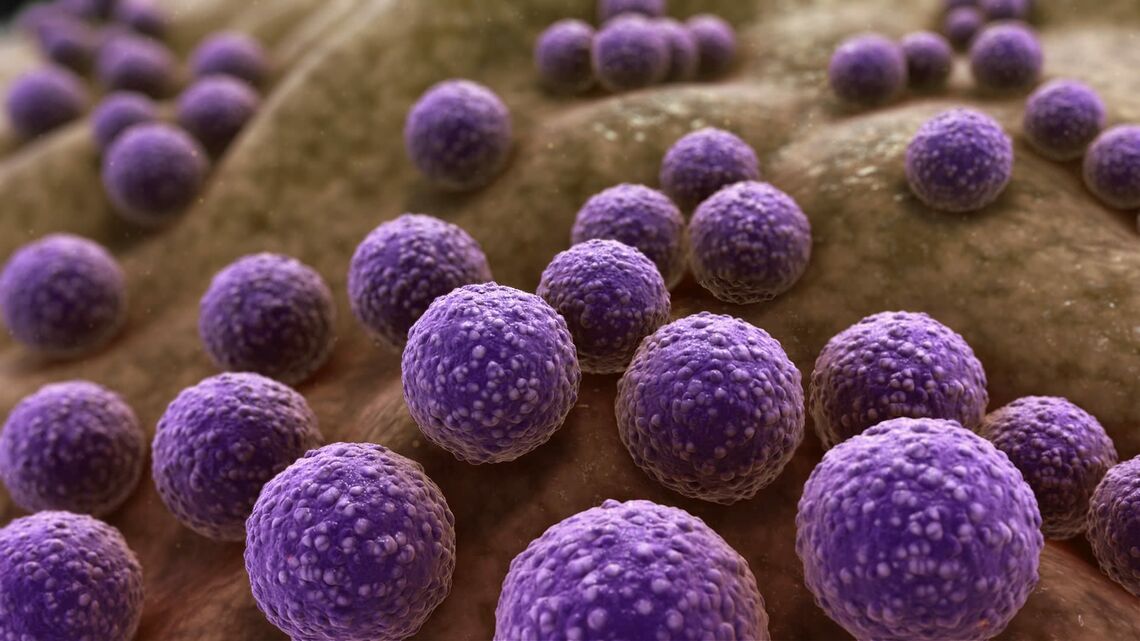Prof Michael Frass, Dr Thomas Peinbauer, Dr Liesbeth Ellinger and Dr Petra Weiermayer have succeeded in publishing a narrative review entitled "Evidence-based Veterinary/Homeopathy and its possible significance for combatting the antimicrobial resistance problem - an overview" in the Swiss Archives of Veterinary Medicine, a conventional peer-reviewed journal. The article was published here, 6 October 2020:
https://sat.gstsvs.ch/de/sat/sat-artikel/archiv/2020/102020/evidence-based-homeopathy-and-veterinary-homeopathy-and-its-potential-to-help-overcome-the-antimic.html
I had the wonderful opportunity to meet and interview Dr. Frass in the course of making this film and he has also written a book on homeopathy in ICU which I find very helpful.
Dr Petra Weiermayer, Prof Michael Frass, Dr Thomas Peinbauer and Dr Liesbeth Ellinger, two human physicians and two veterinarians, have written a narrative review in the spirit of "One Health", entitled "Evidence-based homeopathy and veterinary homeopathy, and its potential to help overcome the antimicrobial resistance problem - an overview", which was published in a conventional peer-reviewed journal.1
The authors clarify the factual situation, which shows evidence for the effectiveness of human and veterinary homeopathy in general, and in homeopathic treatment of infections in particular. On the basis of evidence, they criticize the approach taken in the second Australian NHMRC (National Health and Medical Research Council) Report and the EASAC (European Academies Science Advisory Council) Statement.2, 3
This review serves, among other things, as a foundation for a cooperation with universities in Austria, Germany and Switzerland regarding research projects to evaluate the potential of homeopathy and phytotherapy for the reduction of antibiotics. In view of the demands of the European Green Deal (Farm2Fork Strategy) and the EU Organic Regulation 2018/848:
1) to reduce the use of antibiotics by 50% throughout the EU by 20304
2) to increase the number of organic farms in the EU from 8% to 25% by 20304
3) to give preference to homeopathy and phytotherapy in organic farms before conventional medicines including antibiotics are used5
The application of these complementary medical disciplines in the sense of integrative veterinary medicine, i.e. to combine conventional and complementary medical therapy procedures ("best practices"), is proactive and innovative.
The conclusion of the narrative review clearly discusses the legal and scientific foundations of homeopathy. Evidence level 1a studies are reviewed regarding external evidence on the general use of human and veterinary homeopathy, and, when focusing on external evidence on the use of homeopathy in infections, some evidence level 1a, 1b, 2c studies are described in more detail. They conclude:
"The current national laws (Switzerland, Austria, Germany) and EU legislation guarantee the quality and safety of homeopathic medicinal products as well as the safety of homeopathic therapies carried out lege artis.6 - 15
Evidence for the effectiveness of human and veterinary homeopathy in general, and in particular in the treatment of infections, is sufficiently proven for further research in this field. Five of the six meta-analyses on different indications up to 2014 (see Table 2) concluded that the effectiveness of homeopathic therapy differs from placebo.16 - 20 Only the systematic review with meta-analysis of 2005 as well as the second Australian NHMRC Report and the EASAC Statement, where more than 90% of the studies were excluded from the analysis in each case, did not show any effectiveness of homeopathy beyond placebo.21, 2, 3 A review in 2013 already confirmed that more than 90% of all studies must be excluded in order to conclude that homeopathy is not effective.22 Individualized homeopathy especially demonstrates effects at all quality levels according to Cochrane criteria, even in the methodologically high-quality studies. Obviously non-scientific interests consequently led to misinformation about homeopathy.23
In addition to studies on the proof of effectiveness of homeopathy for infections, data from health care research, so-called Real World Data, show the potential for a significant reduction in the use of antibiotics through homeopathic treatments (see Table 3). Not least because of the global threat posed by the problem of antibiotic resistance, further methodologically high-quality studies are urgently needed in human homeopathy just as in veterinary homeopathy.
Implementation of studies at university facilities is a prerequisite for quality assurance, which can only be achieved by integrating complementary medicine including homeopathy at the universities. This absolutely necessary consequence and demand in the interest of the patients is already asserted by the American Consensus Guideline for university continuing education in integrative veterinary medicine and is legally anchored in Switzerland according to the Medical Professions Act for teaching and research at the university. 24, 25“1
The full text of the narrative review including the 3 tables can be read here (currently available only in German)
https://sat.gstsvs.ch/de/sat/archiv/2020.html
References
Weiermayer P, Frass M, Peinbauer T, Ellinger L. Evidenzbasierte Veterinär-/Homöopathie und ihre mögliche Bedeutung für die Bekämpfung der Antibiotikaresistenzproblematik – ein Überblick. Schweiz Arch Tierheilkd. 2020; online publication, ahead of print.
NHMRC Information Paper, Evidence on the effectiveness of homeopathy for treating health conditions. Australian Government National Health and Medical Research Council. 2015. Canberra, Australien.https://www.nhmrc.gov.au/sites/default/files/images/nhmrc-information-paper-effectiveness-of-homeopathy.pdf (letzter Zugriff 20.7.2020).
European Academies Science Advisory Council. Homeopathic products and practices: assessing the evidence and ensuring consistency in regulating medical claims in the EU, 2017. Halle, Deutschland. https://www.easac.eu/fileadmin/PDF_s/reports_statements/EASAC_Homeopathy_Statement.jpg (letzter Zugriff 20.7.2020).
European Green Deal. Organic farming - action plan for the development of EU organic production. EU Commission. Brüssel, Belgien. https://ec.europa.eu/info/law/better-regulation/have-your-say/initiatives/12555-Action-plan-for-the-development-of-EU-organic-production (letzter Zugriff 17.9.2020)
Verordnung (EU) 2018/848 des Europäischen Parlaments und des Rates vom 30. Mai 2018 über die ökologische/biologische Produktion und die Kennzeichnung von ökologischen/biologischen Erzeugnissen sowie zur Aufhebung der Verordnung (EG) Nr. 834/2007 des Rates. Brüssel, Belgien. https://eur-lex.europa.eu/legal-content/DE/TXT/?uri=CELEX:32018R0848 (letzter Zugriff 20.7.2020).
Bundesgesetz über Arzneimittel und Medizinprodukte (Heilmittelgesetz, HMG), Änderung vom 18.3.2016. Bern, Schweiz. https://www.admin.ch/opc/de/federal-gazette/2016/1953.pdf (letzter Zugriff 20.7.2020).
Bundesinstitut für Arzneimittel und Medizinprodukte, homöopathische Arzneimittel. Berlin, Deutschland. https://www.bfarm.de/DE/Service/Presse/Themendossiers/Homoeopathie/_node.html (letzter Zugriff 20.7.2020).
Bundesrecht konsolidiert: Gesamte Rechtsvorschrift für Arzneimittelgesetz, Fassung vom 20.7.2020 Letzter Zugriff: 20.7.2020. Wien, Österreich. https://www.ris.bka.gv.at/GeltendeFassung.wxe?Abfrage=Bundesnormen&Gesetzesnummer=10010441 (letzter Zugriff 20.7.2020).
Bundesrecht konsolidiert: Gesamte Rechtsvorschrift für Tierarzneimittelkontrollgesetz, Fassung vom 20.7.2020. Wien, Österreich. https://www.ris.bka.gv.at/GeltendeFassung.wxe?Abfrage=Bundesnormen&Gesetzesnummer=20001741 (letzter Zugriff 20.7.2020).
Directive 2001/83/EC of the European Parliament and of the Council of 6 November 2001 on the Community Code relating to Medicinal Products for Human Use. Brüssel, Belgien.
https://www.ema.europa.eu/en/documents/regulatory-procedural-guideline/directive-2001/83/ec-european-parliament-council-6-november-2001-community-code-relating-medicinal-products-human-use_en.pdf (letzter Zugriff 20.7.2020).Gesetz über den Verkehr mit Arzneimitteln (Arzneimittelgesetz – AMG). Berlin, Deutschland. https://www.gesetze-im-internet.de/amg_1976/index.html (letzter Zugriff 20.7.2020).
Richtlinie 92/73/EWG des Rates vom 22. September 1992 zur Erweiterung des Anwendungsbereichs der Richtlinien 65/65/EWG und 75/319/EWG zur Angleichung der Rechts- und Verwaltungsvorschriften über Arzneimittel und zur Festlegung zusätzlicher Vorschriften für homöopathische Arzneimittel. Brüssel, Belgien. Aufgehoben durch Directive 2001/83/EC.
https://eur-lex.europa.eu/legal-content/DE/TXT/?uri=CELEX:31992L0073 (letzter Zugriff 20.7.2020).Verordnung des Schweizerischen Heilmittelinstituts über die vereinfachte Zulassung und das Meldeverfahren von Komplementär- und Phytoarzneimitteln (Komplementär- und Phytoarzneimittelverordnung, KPAV) vom 7.9.2018. Bern, Schweiz. https://www.admin.ch/opc/de/official-compilation/2018/3675.pdf (letzter Zugriff 20.7.2020).
Verordnung (EU) 2018/848 des Europäischen Parlaments und des Rates vom 30. Mai 2018 über die ökologische/biologische Produktion und die Kennzeichnung von ökologischen/biologischen Erzeugnissen sowie zur Aufhebung der Verordnung (EG) Nr. 834/2007 des Rates. Brüssel, Belgien. https://eur-lex.europa.eu/legal-content/DE/TXT/?uri=CELEX:32018R0848 (letzter Zugriff 20.7.2020).
Verordnung (EU) 2019/6 des Europäischen Parlaments und des Rates vom 11. Dezember 2018 über Tierarzneimittel und zur Aufhebung der Richtlinie 2001/82/EG. Brüssel, Belgien. https://eur-lex.europa.eu/legal-content/DE/TXT/?uri=uriserv:OJ.L_.2019.004.01.0043.01.DEU&toc=OJ:L:2019:004:TOC (letzter Zugriff 20.7.2020).
Kleijnen, J., Knipschild, P., Ter Riet, G. (1991): Clinical trials of homeopathy. BMJ 302(6772): 316-23.
Linde, K., Clausius, N., Ramirez, G., Melchart, D., Eitel, F., Hedges, L.V., Jonas, W.B. (1997): Are the clinical effects of homeopathy placebo effects? A meta-analysis of placebo-controlled trials. Lancet 350(9081): 834–843.
Linde, K., Scholz, M., Ramirez, G., Clausius, N., Melchart, D., Jonas, W.B. (1999): Impact of study quality on outcome in placebo-controlled trials of homeopathy. J Clin Epidemiol 52(7): 631–636.
Cucherat, M., Haugh, M.C., Gooch, M., Boissel, J.P. (2000): Evidence of clinical efficacy of homeopathy. A meta-analysis of clinical trials. HMRAG. Homeopathic Medicines Research Advisory Group. Eur J Clin Pharmacol 56(1): 27–33.
Mathie, R.T., Lloyd, S.M., Legg, L.A., Clausen, J., Moss, S., Davidson, J.R.T., Ford, I. (2014a): Randomised placebo-controlled trials of individualised homeopathic treatment: systematic review and meta-analysis. Syst Rev 3: 142.
Shang, A., Huwiler-Müntener, K., Nartey, L., Jüni, P., Dörig, S., Sterne, J.A.C., Pewsner, D., Egger, M. (2005): Are the clinical effects of homeopathy placebo effects? Comparative study of placebo-controlled trials of homeopathy and allopathy. Lancet 366(9487): 726–32.
Hahn, R.G. (2013): Homeopathy: meta-Analysis of pooled clinical data. Forsch Komplement 20(5): 376–81.
Matthiessen, P. (2018): Homöopathie und intellektuelle Redlichkeit – Eine Stellungnahme. Dtsch Zeitschrift für Onkol 50: 172–7.
Memon, M.A., Shmalberg, J., Adair, H.S.3rd, Allweiler, S., Bryan, J.N., Cantwell, S., Carr, E., Chrisman, C., Egger, C.M., Greene, S., Haussler, K.K., Hershey, B., Holyoak, G.R., Johnson, M., Le Jeune, S., Looney, A., McConnico, R.S., Medina, C., Morton, A.J., Munsterman, A., Nie, G.J., Park, N., Parsons-Doherty, M., Perdrizet, J.A., Peyton, J.L., Raditic, D., Ramirez, H.P., Saik, J., Robertson, S., Sleeper, M., Van Dyke, J., Wakshlag, J. (2016): Integrative veterinary medical education and consensus guidelines for an integrative veterinary medicine curriculum within veterinary colleges. Open Vet J. 6(1): 44–56.
Bundesgesetz über die universitären Medizinalberufe (Medizinalberufegesetz, MedBG), Fassung vom 23.6.2003, Stand am 1.2.2020. Bern, Schweiz. https://www.admin.ch/opc/de/classified-compilation/20040265/index.html (letzter Zugriff 20.7.2020).
As we believe in giving various perspectives a voice, we may publish ideas we don't necessarily agree with, therefore the views of the authors do not necessarily reflect the views of Magic Pills, Ananda More, or Phosphorus Films.



